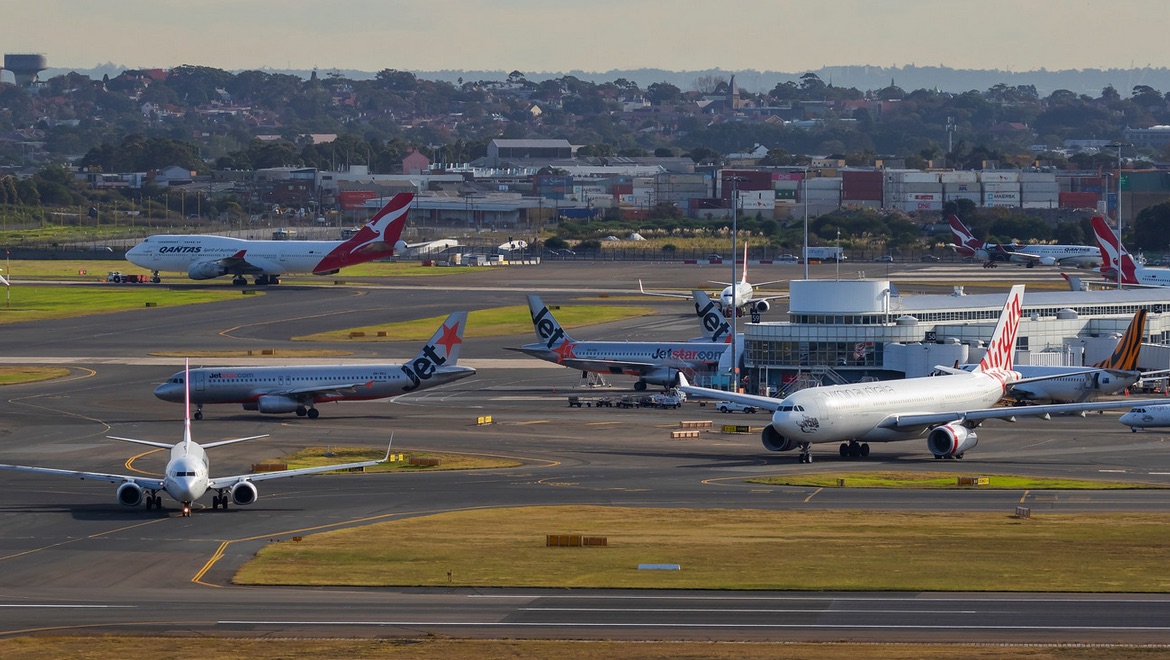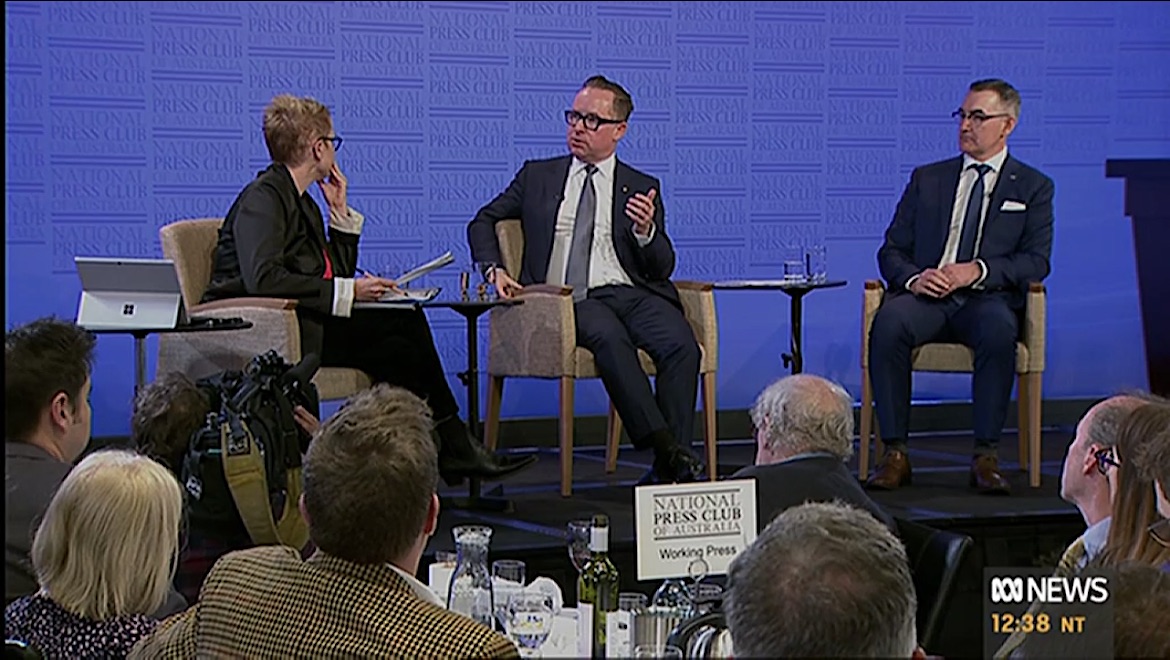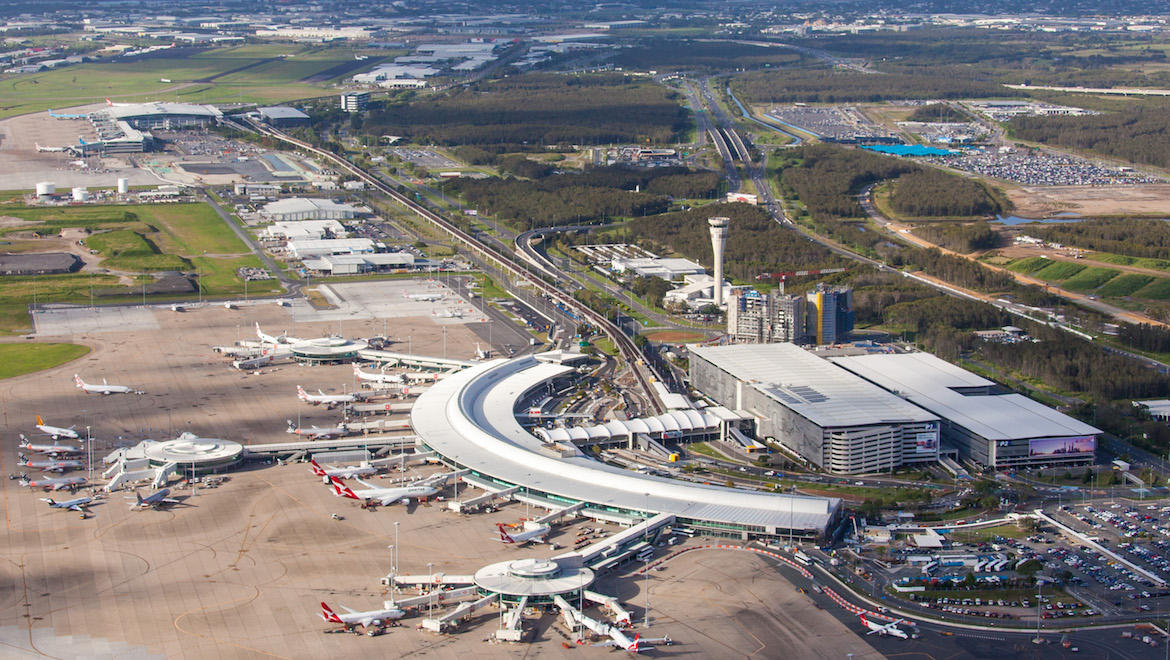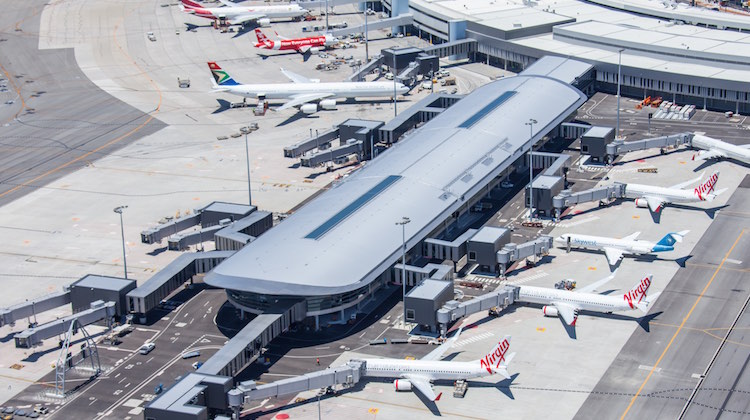
Australia’s two largest airline groups have headed to Canberra to argue for changes to the regulation of the nation’s airports.
Qantas chief executive Alan Joyce and Virgin Australia chief executive Paul Scurrah shared a stage at the National Press Club on Wednesday with the aim of convincing the federal government to look past the conclusions of a recent Productivity Commission draft report that backed the current arrangements.
The pitch? High charges at Australia’s airports meant passengers were paying too much to fly, to park and to eat and drink when travelling. Meanwhile, airlines were getting charged excessively high fees to land and take off.
This was holding back the nation’s productivity.
Joyce described airports as “really expensive places”.
“It costs more to buy a coffee. It costs more to rent a car. It costs more to get a taxi,” Joyce said in his speech to the National Press Club in prepared remarks.
“And, as you can imagine, it costs a lot more than it should to land an aircraft. In fact, airport charges are the fourth highest expenses for airlines, after fuel, aircraft and wages.”
“High airport fees ultimately mean airfares are higher than they should be.Fewer people can fly or they fly less often.”

Qantas and Virgin Australia were both members of Airlines for Australia and New Zealand (A4ANZ), a lobby group set up in 2007 to advocate on matters of aviation policy such as infrastructure constraints and high taxes.
In addition to Qantas and Virgin Australia, its other members included Air New Zealand, Regional Express (Rex), Jetstar and Tigerair Australia.
A4ANZ has argued that the current regulation of Australian and New Zealand airports, which some have described as natural monopolies with no effective competition, was ineffective.
Its submission to the Productivity Commission’s inquiry into the economic regulation of the nation’s airports proposed changes to the current regulatory model to allow airports and airlines that did not reach agreement on a pricing regime during negotiations to have a decision arbitrated on their behalf.
The proposal was supported by the Australian Competition and Consumer Commission (ACCC).
However, the Productivity Commission’s draft report, which was published in February, described the current regulatory arrangements as fit for purpose and had benefitted the community.
Further, it said Australia’s largest airports – Brisbane, Melbourne, Perth and Sydney, which are subject to monitoring by the Australian Competition and Consumer Commission (ACCC) – “have not systematically exercised their market power to the detriment of the community”.
Also, the Productivity Commission report said the negotiate-arbitrate framework would have few benefits and many risks.
“There is no doubt that some commercial negotiations between airports and airlines have been challenging but, on balance, the process and the outcomes reached give little cause for concern,” the draft report said.
“A negotiate-arbitrate framework would have substantial perverse effects that would harm the efficiency of the sector and negatively affect passengers.
“The benefits would need to be very large for the costs and risks of such a framework to be tolerable. They are not.”

A Productivity Commission commissioner, Paul Lindwall, defended the draft report in a speech to an Infrastructure Partnerships Australia Industry event on March 19.
Lindwall said the four largest airports of Brisbane, Melbourne, Perth, and Sydney “had market power, but they were not exercising or exploiting that market power”.
“The mere fact that an airport has market power is insufficient to justify more heavy-handed regulation,” Lindwall said, according to a transcript published on the PC website.
The Productivity Commission said on its website the final report was handed to the federal government on June 21 2019. It was expected to be released by October.
“Under the Productivity Commission Act 1998, the government is required to table the report in each House of the Parliament within 25 sitting days of receipt,” the Productivity Commission said on its website.

In calling for change to what Scurrah described as the relatively arcane world of infrastructure pricing and airport regulation, the Virgin Australia chief executive said the airlines were “taking a stand for the travelling public”.
Further, Scurrah said the Productivity Commission had “dropped the ball” in its recently inquiry into airport regulation.
“The airports we are dealing with are privatised monopolies that own and operate many of Australia’s airports, with many generating profit margins that are grossly inflated in my view because of the pricing power they have,” Scurrah said in his National Press Club address in prepared remarks.
“This has created a lopsided outcome that is bad for the travelling public, bad for the country and bad for the economy.
“Unchecked, these monopolies are cruelling our Nation’s economic growth.”
While the two chief executives have sought to cast their campaign for change as one for the benefit of consumers, the Australian Airports Association (AAA) described it as a “disingenuous attempt to increase airline profits at expense of investment”.
The AAA, whose membership includes about 280 airports and aerodromes and some 120 aviation stakeholders and organisations, has said previously the proposed negotiate-arbitrate model was a solution in search of a problem.
“Airlines simply can’t tell us how the arbitration framework they’re proposing will work in a complex airport environment,” AAA chief executive Caroline Wilkie said in a statement released prior to the two chief executive speeches on Wednesday.
“This cynical cash grab from the airlines only serves to threaten planned investment in the new runways and terminals set to bring a wave of aviation growth to Australia over the next decade.”
















Red Cee
says:I agree. Once inside an airport, you are a natural captured market. They charge excessive prices to park your car, plus excessive prices for food and coffee. No doubt the rents charged to tenants is part of the reason for the high price. If so, that alone is part of the problem.
Trevor
says:The AAA is a massively conflicted organisation. How can they possibly represent both Capital City airports and regional airports concurrently. They only “represent” regional airports to keep them quiet, and stop them questioning the profiteering of the capital city airports at the expense of the regional communities.